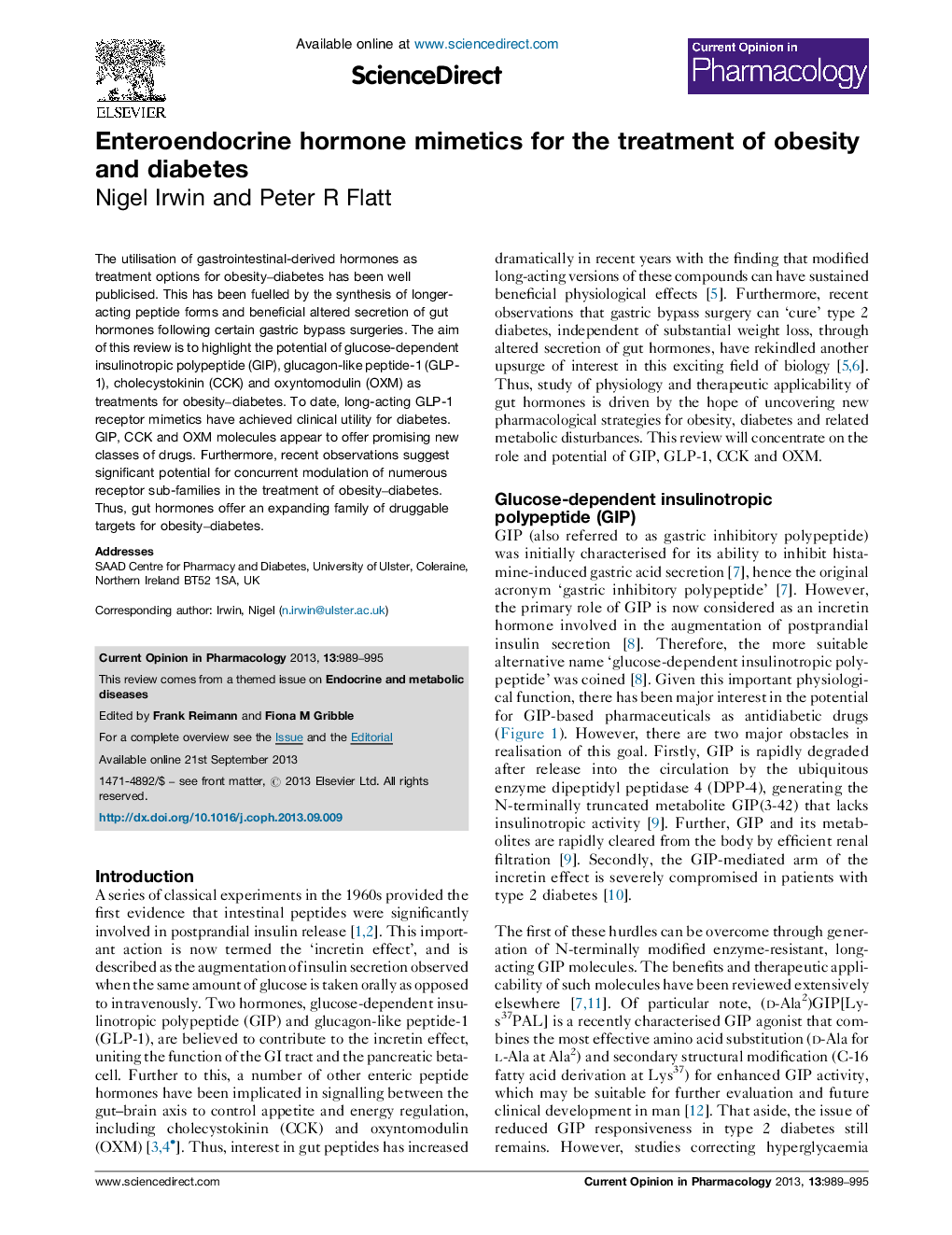| Article ID | Journal | Published Year | Pages | File Type |
|---|---|---|---|---|
| 5826263 | Current Opinion in Pharmacology | 2013 | 7 Pages |
Abstract
The utilisation of gastrointestinal-derived hormones as treatment options for obesity-diabetes has been well publicised. This has been fuelled by the synthesis of longer-acting peptide forms and beneficial altered secretion of gut hormones following certain gastric bypass surgeries. The aim of this review is to highlight the potential of glucose-dependent insulinotropic polypeptide (GIP), glucagon-like peptide-1 (GLP-1), cholecystokinin (CCK) and oxyntomodulin (OXM) as treatments for obesity-diabetes. To date, long-acting GLP-1 receptor mimetics have achieved clinical utility for diabetes. GIP, CCK and OXM molecules appear to offer promising new classes of drugs. Furthermore, recent observations suggest significant potential for concurrent modulation of numerous receptor sub-families in the treatment of obesity-diabetes. Thus, gut hormones offer an expanding family of druggable targets for obesity-diabetes.
Related Topics
Life Sciences
Neuroscience
Cellular and Molecular Neuroscience
Authors
Nigel Irwin, Peter R Flatt,
